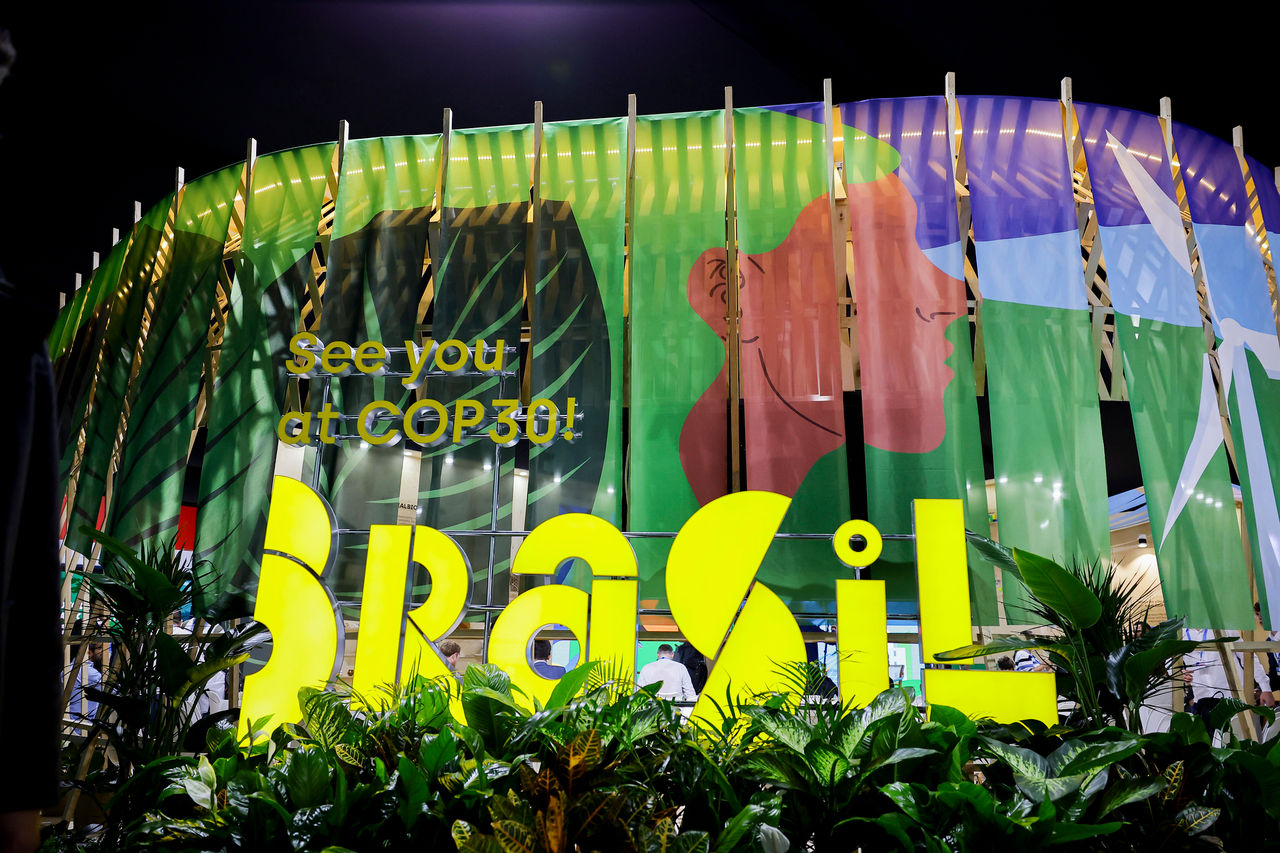With ambitious goals and a commitment to a just transition, Brazil will showcase its key initiatives at COP29, setting the stage to host COP30 in 2025.
*Translated with AI
The Brazilian Trade and Investment Promotion Agency (ApexBrasil) will once again take the lead for the Brazil Pavilion at the 29th United Nations Climate Change Conference (COP29), held in Baku, Azerbaijan, from November 11 to 22, 2024. This year’s pavilion theme, “Pathways to Ecological Transformation,” will center on fostering discussions about an ecological economy guided by a just transition, scientific knowledge, and traditional wisdom for harmonious coexistence between humanity and nature.
The Brazil Pavilion is a result of a strategic partnership between ApexBrasil, various government institutions, and private sector organizations. Partners include the Ministry of Foreign Affairs (MRE), the Ministry of Finance (MF), the Ministry of the Environment (MMA), and sponsors like the National Bank for Economic and Social Development (BNDES), along with companies and civil society organizations committed to the climate agenda.
"We are working alongside our partners to reinforce Brazil’s commitment to ecological transition, clean technologies, and valuing biodiversity. Brazil has reclaimed its leadership role in global climate discussions, which was neglected by the previous administration. After reestablishing this position at last year’s COP in Dubai—where ApexBrasil also led the Brazil Pavilion—we are taking a strategic role this year to emphasize Brazil's dedication to climate goals and prepare for COP30 in Belém, Pará, next year,” said ApexBrasil President Jorge Viana.
Located in the conference's Blue Zone, the Brazil Pavilion will showcase initiatives aimed at climate change mitigation, with a strong emphasis on forest preservation, conservation, and regeneration. Brazil’s strategic plan is anchored in two main frameworks: the Ecological Transformation Plan (PTE) and the Climate Plan, spearheaded by the Ministry of Finance and the Ministry of the Environment. Key highlights include the promotion of bioeconomy, sustainable agro-food systems, energy transition, and circular economy practices.
In addition to thematic discussions, the pavilion will feature cultural events, interactive exhibitions, and high-level panels, creating a dynamic space for exchanging experiences and strengthening international partnerships.
COP29 will serve as a pivotal moment for Brazil to demonstrate its commitment to its Nationally Determined Contributions (NDCs), including reducing greenhouse gas emissions by 48% by 2025 and 53% by 2030, compared to 2005 levels. These ambitious targets, aligned with the Paris Agreement, position Brazil as a global leader in climate action.
By leading the Brazil Pavilion at COP29, ApexBrasil reaffirms its role in promoting a positive and innovative image of Brazil, showcasing the country’s potential in areas such as bioeconomy, biome preservation, and cutting-edge solutions for climate adaptation and mitigation.
Federal Government Actions to Address the Climate Crisis
The Brazilian government has implemented a range of strategic measures to combat the climate crisis and promote sustainable development. These include:
- Ecological Transformation Plan (PTE): Launched in 2023, this comprehensive plan aims to reduce greenhouse gas emissions in productive activities, create green jobs, and foster technological innovation. It focuses on six key areas: sustainable finance, bioeconomy and agro-food systems, energy transition, circular economy, green infrastructure, and climate adaptation.
- Action Plan for the Prevention and Control of Deforestation in the Legal Amazon (PPCDAm): Initiated in 2004, PPCDAm was instrumental in reducing deforestation by 83% by 2012. After a period of setbacks, the plan was reinstated in 2023 with the goal of achieving zero deforestation by 2030, emphasizing sustainable productive activities, environmental monitoring, and territorial management.
- National Plan for the Recovery of Native Vegetation (PLANAVEG): This initiative aims to restore at least 12 million hectares of native vegetation by 2030 through financial incentives, strengthened public policies, and the promotion of sustainable agricultural practices.
Through these efforts, Brazil seeks to reposition itself as a global leader in the environmental agenda, reinforcing its commitment to biome preservation and climate change mitigation.
Brazil’s Participation in COP28
At COP28 in Dubai, Brazil reasserted its leadership in global climate discussions, with a pavilion coordinated by ApexBrasil in partnership with the MMA, MRE, and supported by institutions such as CNI, BNDES, and Banco do Brasil. The event featured over 120 panels focusing on technological innovations, environmental protection, and climate commitments. Brazil’s participation highlighted its dedication to Amazon preservation and sustainable development, marking a new phase of proactive environmental policies.
For more details, click here.

